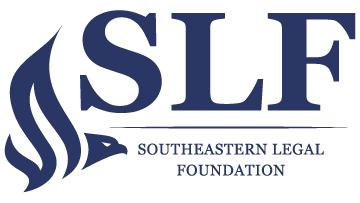[May 5, 2025] Today, Southeastern Legal Foundation (SLF) and Mountain States Legal Foundation (MSLF), two organizations that litigate to defend your constitutional rights, filed a petition with the Supreme Court of the United States (SCOTUS) asking the court to take up the case of Robert Holman. Holman is a fourth-generation Tennessee farmer who was ineligible for Biden’s COVID-19 debt relief plan only because of his race. The request for SCOTUS intervention is especially timely as the new Trump Administration discusses how to stop DEI in government operations and programming.
SLF and MSLF previously filed a lawsuit against the USDA on behalf of Holman, who was excluded from the clearly discriminatory Debt Relief For “Socially Disadvantaged” Farmers provision in the American Rescue Plan Act of 2021, a farm loan forgiveness program for non-white farmers. The court quickly entered an injunction, pausing the blatantly discriminatory program, and Congress had no choice but to repeal the unconstitutional law just one year later.
Shortly after, Holman sought attorney’s fees related to the lawsuit under a law called the Equal Access to Justice Act (EAJA). EAJA is an important law; it allows private parties in actions against the federal government to recover attorney’s fees when the government’s position related to the lawsuit was not “substantially justified.” But instead of rewarding Holman for standing up and halting discrimination, the Sixth Circuit denied fees, holding that USDA’s defense of its racist program was good enough to avoid fees.
SLF and MSLF are arguing to SCOTUS that the Sixth Circuit’s decision sets an incredibly dangerous precedent. The ruling effectively ensures that the government will never pay attorney’s fees when it discriminates against Americans like Holman, so long as the government’s lawyers put on a good face in court. This new rule could breed more discrimination from the federal government in future administrations under the name of DEI, because the government knows that its discrimination will come at a relatively cheap cost. The new rule will also discourage future lawsuits against discriminatory policies by using the high costs of litigation to dissuade plaintiffs from challenging those laws in court.
SLF and MSLF argue that “[w]hen it comes to equal treatment, there should be no division among courts: it is unreasonable for the government to discriminate on the basis of race. That is why race classifications are subject to strict scrutiny, not rational basis review. Yet in holding that the government’s pre-litigation position was substantially reasonable, the Sixth Circuit has paved the way for racial discrimination in all sorts of government programs. No matter how egregious a discriminatory policy put forth by an agency may be, under the Sixth Circuit’s reasoning, the government need only play nicely in court to avoid any real accountability for violating equal protection.”
The USDA’s discrimination was so overt and unlawful that the policy was enjoined by a federal court and repealed by Congress. But somehow, the Sixth Circuit found that government was justified in enacting and defending that same discrimination in court. That decision is clearly wrong. SCOTUS needs to take up this case to affirm that discrimination is never justifiable, and that if the government does wrong it must be held accountable.
Download press release.
